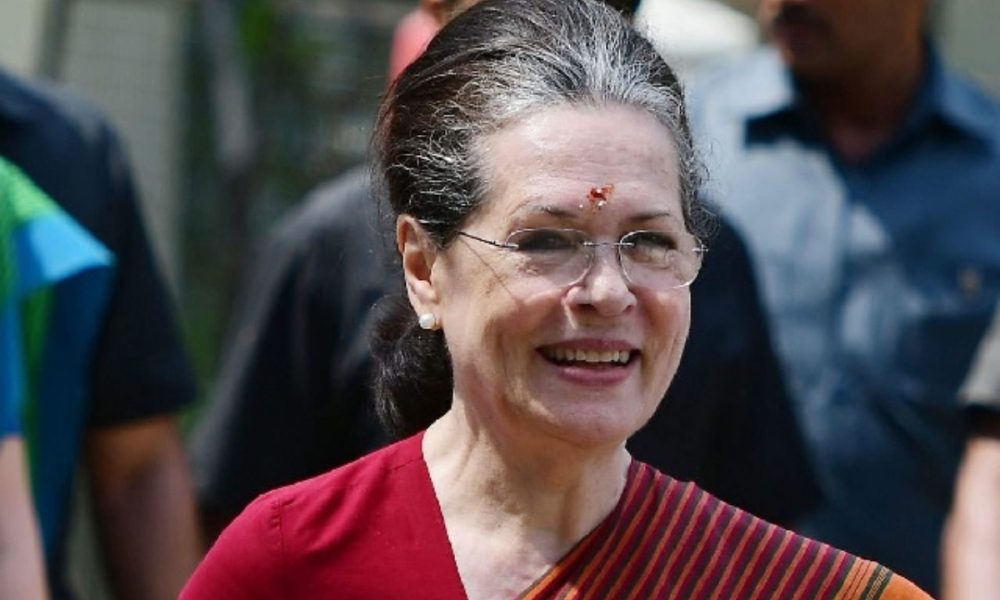
In recent weeks, the Middle East has again taken center stage in India’s political discourse—this time not because of our proximity to the region, but due to a growing domestic divergence in how India’s foreign policy is being interpreted, contested, and politicized. At the heart of the current debate lies a sharp contrast between the Ministry of External Affairs (MEA)’s strategic restraint and Congress leader Sonia Gandhi’s moralistic rebuke.
As a political strategist, I find it imperative to examine both the diplomatic reality and the political motivation behind this divide—and to question why humanitarian crises like Gaza are repeatedly weaponized for vote-bank appeasement rather than addressed through a consistent national doctrine.
India’s Realist Doctrine: Firm, Fair, and Balanced
Let’s begin with the facts. India’s official position on international conflicts—especially involving Israel, Iran, and Palestine—has consistently been balanced, anti-terror, and pro-peace.
Israel–Iran Conflict (2025)
Following Israel’s June 13th strikes on Iranian territory, the Indian government responded swiftly and soberly. A 24×7 MEA control room was activated. Indian nationals were evacuated from high-risk zones under Operation Sindhu. Instead of taking sides, India urged “mutual restraint” and de-escalation. It even distanced itself from an anti-Israel SCO resolution, choosing a neutral position that aligns with its independent foreign policy legacy.
In sharp contrast, Sonia Gandhi accused the government of “unlawful silence,” calling the strikes disproportionate and blaming Modi for abandoning India’s moral voice. But this isn’t about morals—it’s about maintaining simultaneous diplomatic partnerships with both Iran and Israel, which is critical for India’s energy, trade, and strategic interests.
Gaza Conflict (2023–2024)
India condemned the Hamas terror attack of October 7 and reaffirmed Israel’s right to self-defense. At the same time, it advocated humanitarian access to Gaza and aid for civilians. Notably, India has provided over 70 tonnes of medical and food supplies to Palestine in the last year alone.
Again, the MEA abstained on controversial UN ceasefire resolutions—not because it was indifferent, but because those texts failed to name Hamas or mention terrorism, creating diplomatic imbalance.
Yet Sonia Gandhi labeled this abstention as “moral abdication.” She spoke of suffering in Gaza—but conspicuously omitted any mention of Hamas terror. This selective outrage, in my view, is less about Palestine and more about signaling to a domestic vote-bank.
Strategic Equilibrium, Not Selective Condemnation
India’s policy has never been about choosing sides. We support Palestine. We also support Israel. We condemn terror, but not through the lens of religion or ideology.
– India was among the first nations to recognize Palestine, and has given over $160 million in developmental aid.
– Simultaneously, Israel is India’s top defense technology partner, offering critical support in drones, counter-terror systems, and agriculture.
– Iran, despite global pressure, remains vital for India’s energy security and Chabahar port strategy.
MEA must walk this complex diplomatic tightrope. Moralizing foreign policy decisions, as Sonia Gandhi has done, may earn applause in activist circles, but it risks diplomatic damage and undermines India’s hard-earned credibility as a neutral, sovereign voice.
The Real Issue: Vote-Bank Politics Masquerading as Morality
Now, let’s get to the elephant in the room: why does the Opposition show outrage only when the aggressor is Israel, but remain conveniently quiet when terror groups like Hamas target civilians?
The answer lies in a well-known political playbook:
1. Selective Humanitarianism – Gandhi’s article doesn’t mention Hamas once. It’s not an oversight—it’s a pattern.
2. Framing Israel as a Villain – This feeds a domestic narrative for ideological blocs.
3. Downplaying Radical Islamic Terror – Avoiding mention of jihadist groups to maintain community vote banks.
In doing so, they sacrifice India’s principled anti-terror posture for short-term electoral messaging.
Why India’s Approach Is Correct
– We condemned Hamas: Because terrorism has no justification.
– We sent aid to Palestine: Because human suffering is real.
– We didn’t take sides: Because both Israel and Iran are vital to our strategic interests.
– We abstained at the UN: Because the resolutions were lopsided and politically motivated.
– We didn’t moralize: Because international diplomacy is built on pragmatism, not populism.
India’s current foreign policy, under the Modi government, has moved beyond Nehru-era sentimentalism. It recognizes that global relationships aren’t about slogans—they’re about security, survival, and strategic depth.
Final Word
In politics, as in diplomacy, what you don’t say often reveals more than what you do. Sonia Gandhi’s silence on Hamas and her attack on Israel speak louder than her calls for “moral leadership.” Her article isn’t a policy critique—it’s a campaign pitch, cloaked in humanitarianism but rooted in vote-bank appeasement.
India deserves a foreign policy that is pro-India, not pro-ideology. And for that, the MEA’s strategic clarity must be defended, not distorted for electoral gain.
( Himanshu Jain is a political strategist and commentator on Indian foreign policy, national security, and governance reform. )
Disclaimer: The above views are the personal views of the author.




